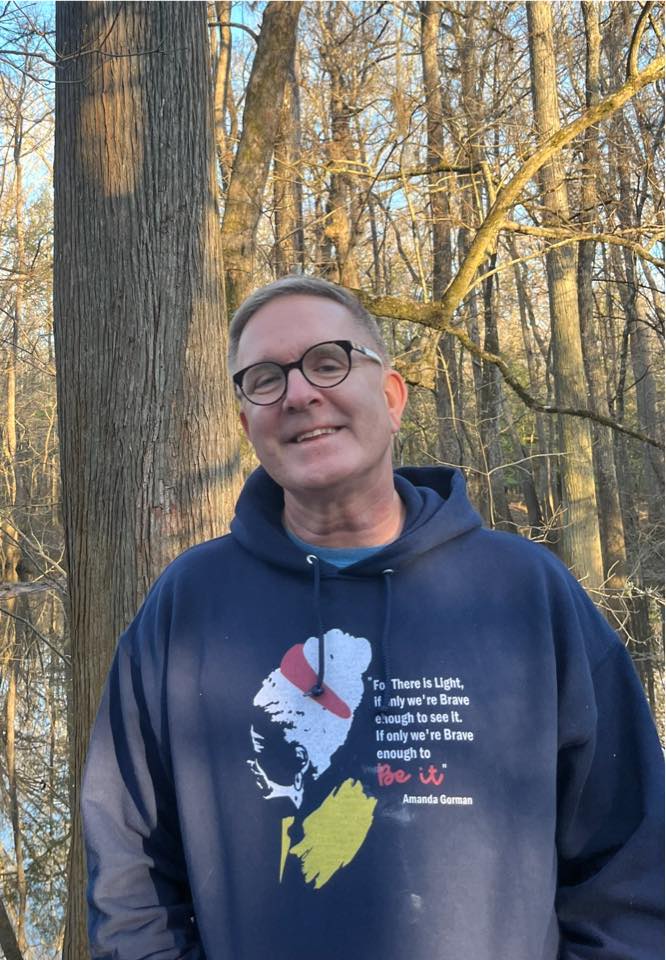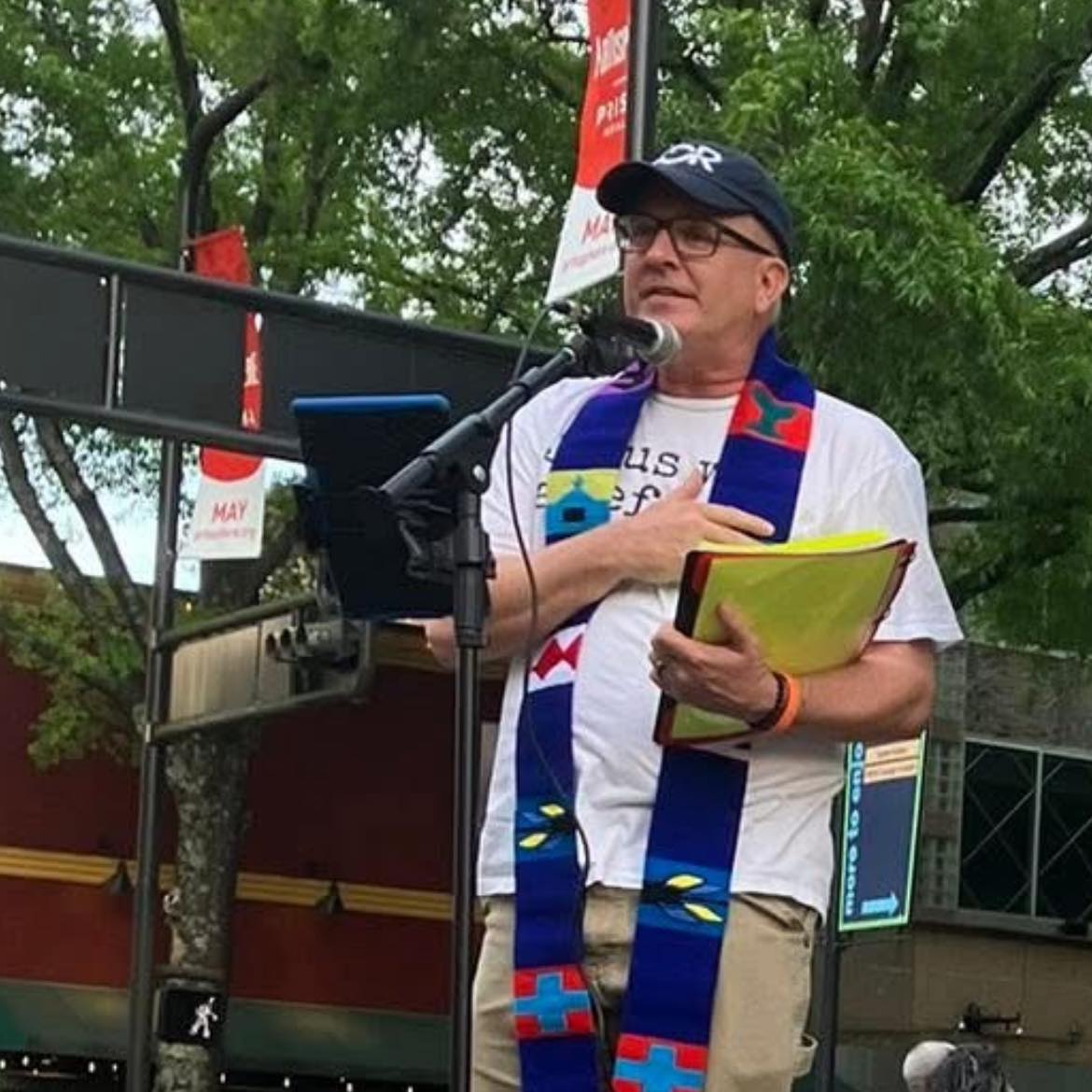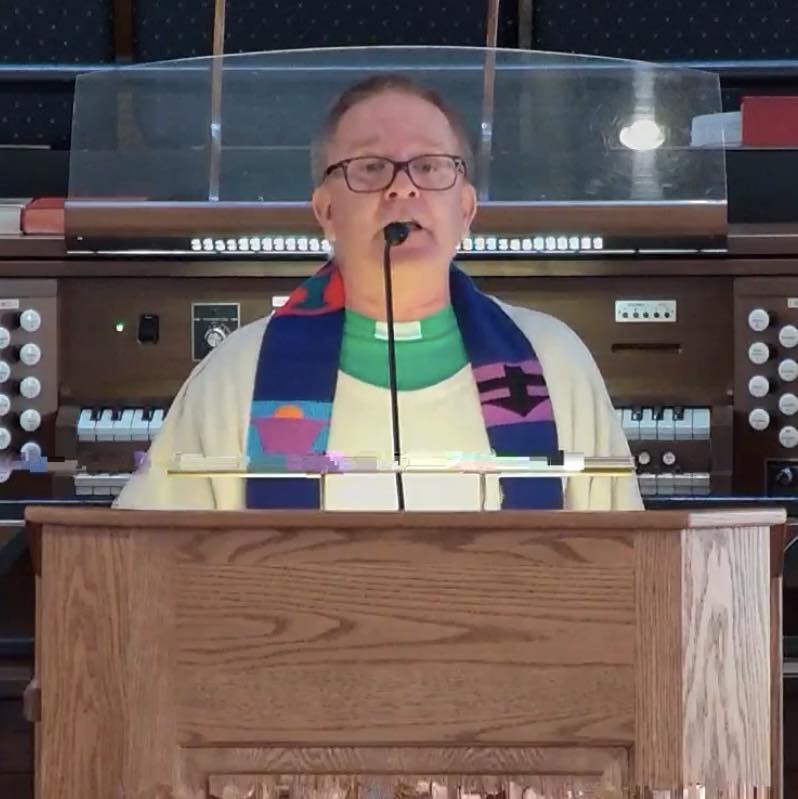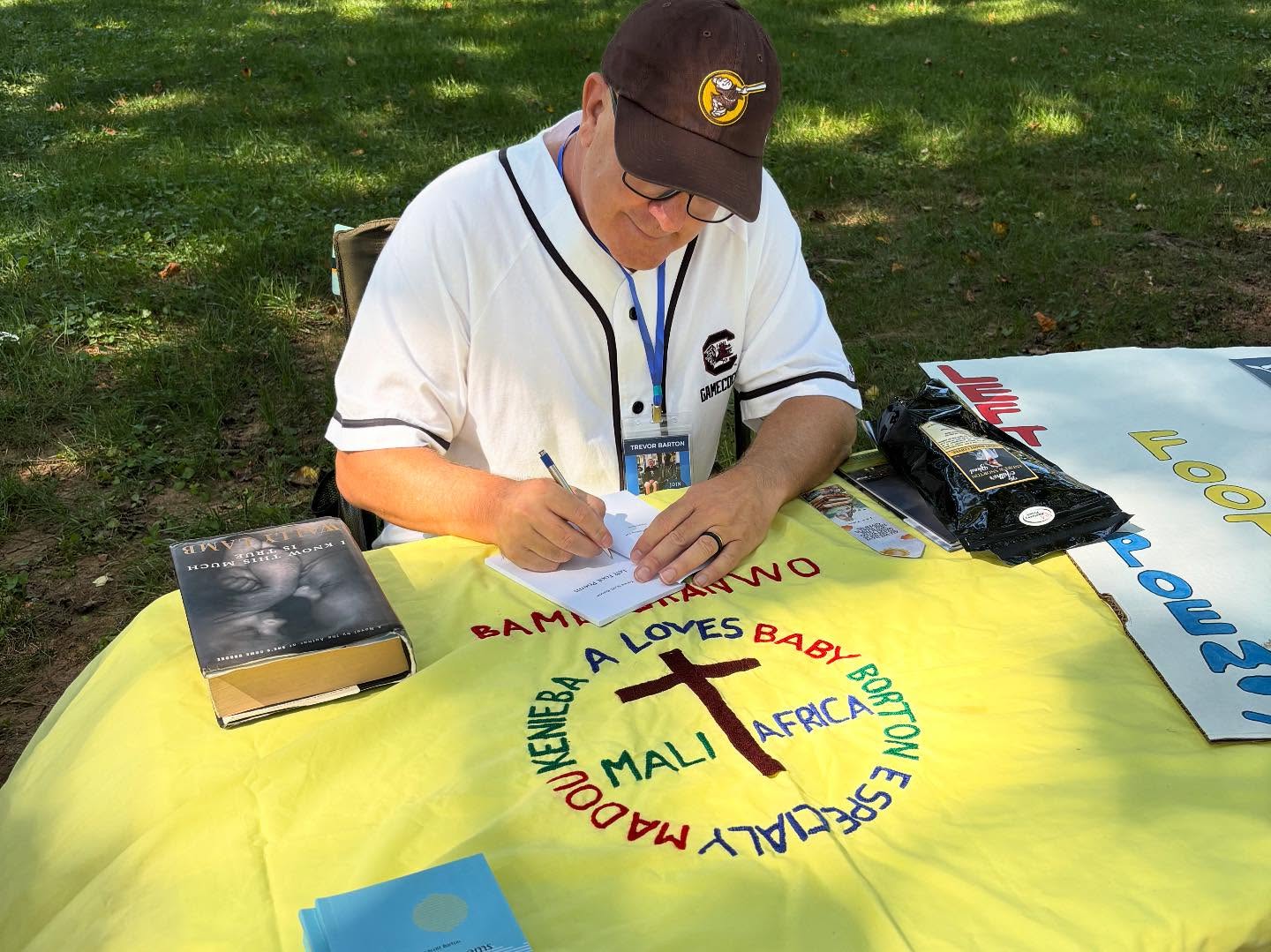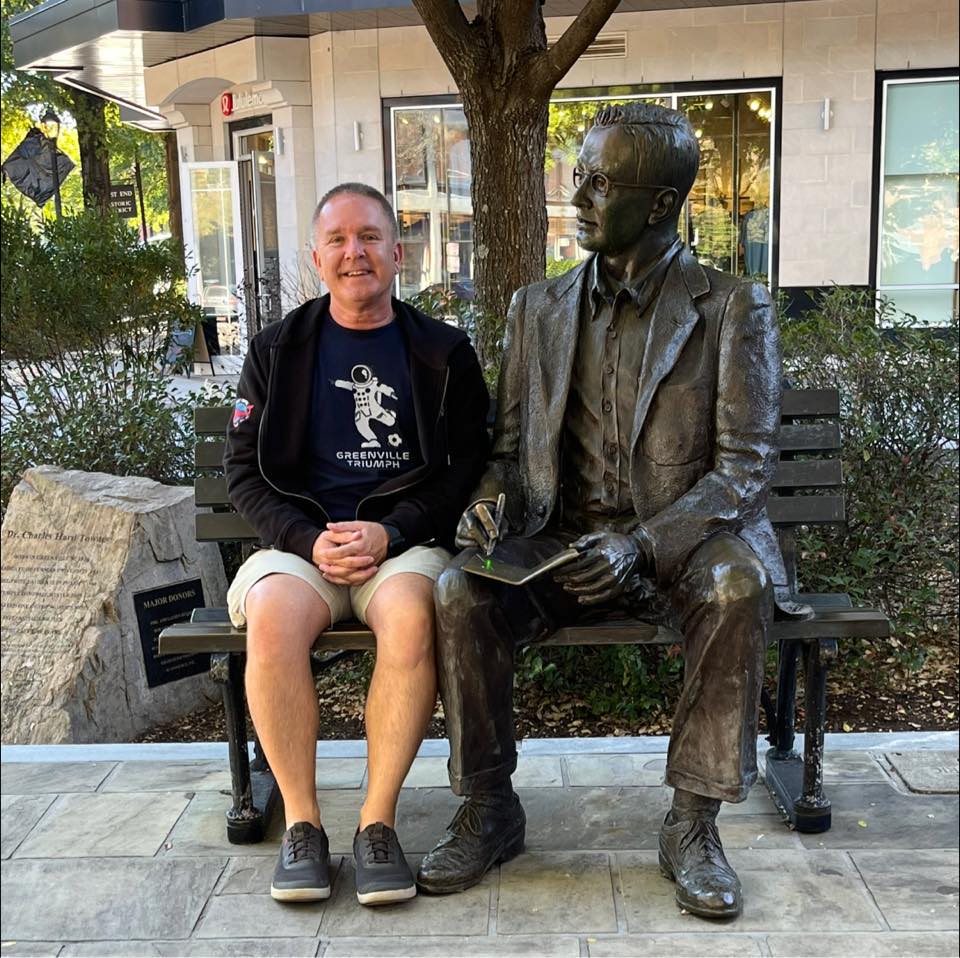

Today we’d like to introduce you to Trevor Barton.
Alright, so thank you so much for sharing your story and insight with our readers. To kick things off, can you tell us a bit about how you got started?
When I was a little boy growing up in Taylors, SC, in the quiet moments in my days, I thought I heard Jesus calling me and saying to me, “Follow me.”
“I want you to be a missionary,” I still here him say. “I don’t want you to be a missionary who goes to places to make people believe, think, look and act like you, That’s not the kind of missionary I’m talking about. I want you to go to the margins of the world, where people have been “othered,” and make friends. I want you to be that kind of missionary. A #yeahthatmissionary kind of missionary.”
So, I’ve served within the church in the inner-cities of Louisville, KY and Greenville, SC, trying to build the beloved community with the people around me. I’ve served in the midst of rural poverty outside of Nashville, TN. I’ve lived in a mountain village in Mali, West Africa. I’ve taught in classrooms at Berea Elementary School where a majority of my students and their families were from Mexico, Central America and South America, and I’m pastoring along the streets and within the sanctuary of Triune Mercy Center, learning to welcome, see, hear, vlaue, love and support everyone I meet, looking closely and listening carefully peoples faces, seeing and hearing stories, and understanding each and every day the gift they are to the world.
One of my heroes, the medical missionary and resident genius Albert Schweitzer, wrote in his book The Quest of the Historical Jesus, “He comes to us as One unknown, without a name, as of old, by the lakeside, He came to those men who knew Him not. He speaks to us the same words: “Follow thou me!” and sets us to the tasks which He has to fulfill for our time. He commands. And to those who obey Him, whether they be wise or simple, He will reveal himself in the toils, the conflicts, the sufferings which they shall pass through in His fellowship, and, as an ineffable mystery, they shall learn in their own experience Who He is.”
Albert’s words are true for me as I try humbly to follow Jesus in my work as a missionary in the world.
Can you talk to us a bit about the challenges and lessons you’ve learned along the way. Looking back would you say it’s been easy or smooth in retrospect?
Sometimes the road has been filled with struggles.
The neighborhoods around the elementary school in which I taught were filled with families from Mexico, Central America and South America.
The children of those families made their way through the doors of my school and through the doors of my classroom each morning.
They made their way through the door of my heart.
Most of the families in those neighborhoods are struggling to put roofs over their heads, food on their tables, and clothes on their backs.
They often hear people use words that describes them hatefully and cruelly.
I know from my life with them just how wrong these words are.
Those who use these words look right past the warm, creative, loving people they are.
They don’t see them at all.
I saw them.
When I walked into my classroom, I saw kids like Hilcias.
His skin was brown, the color of the soil of Honduras from where he came.
His heart language was Spanish.
He was learning English, but sometimes he looked at me like a little boy lost in the woods when I spoke to him in English at my normal pace.
He was very much a real, flesh-and-blood nine year old kid.
Sometimes he laughed until he cried, and sometimes he cried until he washed the sadness from his heart, but always he was eager to learn.
At the beginning of the year, we could barely communicate with each other.
But he he learned more and more English words and phrases as the school weeks passed by, and I learned more and more Spanish words and phrases, so we got along just fine.
On the last day of school before Christmas break, Hilcias came up to me in the hall.
“Bye Mr. Barton,” he said with his wide, warm smile. “I will be back SOON.”
He emphasized the word soon because we had just been talking about adverbs during our writer’s workshop.
“Bye Hilcias,” I said with my own smile. “I can’t wait to see you AGAIN.”
We both giggled.
After the Christmas break, Hilcias walked to my table at the front of the classroom and placed a letter in front of me.
“This is for you,” he said quietly, and he walked back to his table to resume his work.
I opened the letter and began to read:
“I am thankful for Mr. Barton.
Here are some reasons why.
First you teach me how to do fiction or nonfiction stories.
Second you help me know how can I be good at writing.
Finally you make me happy when you pick me to be the student of the day.”
I looked up from the letter to Hilcias.
I thought about how his mother brought him and his younger brother to the United States from Honduras, hoping to make a better life for them.
I thought about the day I was scheduled to meet her at a parent-teacher conference.
On that day, the front office called to let me know that one of our translators wanted to speak with me.
I walked up to the office and the translator was visibly shaken.
She told me that Hilcias’ mom couldn’t come to the conference because she was scheduled to appear before a court for a hearing about her immigration status.
“She was so upset, so distraught when I spoke with her,” said the translator. “She is really afraid.”
I watched Hilcias working, concentrating, trying to do his best.
I thought about how thankful I was to be his teacher, to work with him every day to help him be all that he can be and do all that he can do in the world.
I thought about how wonderful he was.
I picked up my pen and wrote a letter back to him.
I walked over to his table and placed it in front of him.
“This is for you,” I said, and I walked back to my table.
“I am thankful for Hilcias.
Here are some reasons why,” I wrote.
“First, you teach me how to be a better teacher because you are a great student.
Second, you told me you want to become a doctor and there is a kindness in your heart and a sharpness in your mind that will make you great at anything you choose to do.
Finally, you make me happy. You make me happy you are my student.”
He and his family were deported in 2017.
I’ll never forget that.
On the day before he left, after I’d done all of the humble, unimportant elementary school teacher things I could do to help his family stay their deportation order, I handed him a box wrpped in colorful paper and topped with a yellow bow.
He opened the paper carefully, without tearing it, and removed the bow gently, without smushing it, as those who know the value of things are wont to do.
If only you could’ve seen his earthy brown eyes and sonrisa/smile when he opened the box.
There was a stethoscope inside of it.
“I cannot walk beside you, little friend,” I whispered.
“May this stethoscope remind you that I am with you.
The world is cruel, and there are cruel people in it.
But you are kind, and your kindness makes it a better place.
Kindness wins.
I believe this with all my heart.
I believe in you.”
The next day he was gone.
Somewhere along the borders of the world, there is a boy with a stethoscope around his neck who wants to be a doctor and help and heal people.
But he is with me still.
And I’ll fight like hell every day for him and for of the small, quiet ones in the world.
Until kindness wins.
Alright, so let’s switch gears a bit and talk business. What should we know about your work?
One summer evening, I was sitting on a bench on Main Street in Greenville, reading my worn copy of Cry The Beloved Country.
I was marveling at the way Alan Paton listened to life.
I began writing in my notebook and listening to life around me.
I looked up and saw an old man shuffling by.
He wore a tattered raincoat, splattered pants and holey shoes.
I could see his bruised feet that had been battered by the hard streets.
I watched him quietly, without speaking, as he passed by.
I was listening to something without words, because he wasn’t speaking to me or to anyone around him.
Or was he?
I listened in a way I had never listened before.
I listened to the old man’s face.
Yes, I LISTENED to the old man’s face.
I listened to each wrinkle along his forehead and around his eyes.
“What made those wrinkles?” I asked myself.
“Was it laughter or tears?
Natural old age or deep suffering?
Careless living or a heavy, heavy heart?”
I listened to his watery blue eyes.
“Why are you looking down as you shuffle by?” I asked myself.
“Are you holding back tears?
What have your eyes seen?”
I listened to his dirty, unshaven cheeks.
“Does anyone take care of you?” I thought.
“Are you lonely?
Are you alone?”
Listening to faces is hard work.
It has to be developed slowly over time.
We live in a world that teaches us to speak twice as much as we listen, or to speak without listening at all.
Yet, over time, listening to faces will grow the most important thing we can have in our hearts — empathy for each person we encounter every day.
And, over time, listening to faces will grow the most important thing we can have in our hands and feet— simple kindness that reaches out and walks over to each person we encounter every day.
I stood up.
I placed my arm around the shoulder of the shuffling old man.
“Would you like to sit down and have coffee with me?” I asked.
Would you like to be my friend?”
I made a friend, I discovered a neighbor, because I listened to a face.
Can you share something surprising about yourself?
I am a peaceful person and believe deeply in nonviolence, but I love boxing.
Contact Info:
- Website: https://substack.com/@streetwriter
- Facebook: https://www.facebook.com/share/g/1A2cuwvmXo/
